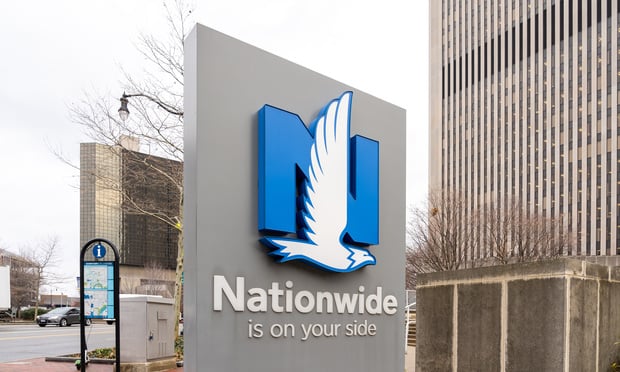The AMS Users Group announced a makeover at its annual meeting, changing its name to NetVU to reflect the identity change of its software development partner, Vertafore.
The AMS Users' Group is a not-for-profit trade organization of independent insurance agencies that use Vertafore management systems to automate their operations.
NetVU–which stands for Network of Vertafore Users–also changed its Web site to www.netvu.org.
“Our new identity is more than just a new logo,” according to the association's current president, James T. Armigate, who is also vice president of Arroyo Insurance Services in Arcadia, Calif. “It is a clear reflection of our role as an industry leader and as an organization dedicated to world-class education, advocacy and networking.”
“NetVU's new name echoes our core values and our view of the future,” added Brady Polansky, chief executive officer of NetVU. “The thought bubbles in the logo indicate the exchange of information–with Vertafore, with the industry and with each other–that is crucial to our membership. And the tagline describes our ultimate purpose: to help agents succeed.”
Bothell, Wash.-based Vertafore–which is the software developer of specialized software solutions for the insurance industry that includes AMS360, AfW, Sagitta and BenefitPoint–last year said it was beginning the process of integrating its products under one brand reflecting a single company identity.
NetVU was founded in 1978 to support those agencies utilizing ARCom technology. It later became AMS Users Group. The association boasts 15,000 independent insurance agency members.
SUCCESS STRATEGIES
Meanwhile, agencies attending the conference were warned that to be successful, they need to go beyond insurance selling by including value-added services and getting involved in their communities.
One session–”Tips for Customer and Prospect Branding”–found two consultants from Aartrijk, a consulting group based in Springfield, Va. (http://aartrijk.com/), discussing how agents can win new customers despite the challenges they face in this tough economy and soft market.
In the past, agents relied on their community connections to develop and maintain a customer base, according to Laurie Donohue, executive director of I-Marketing Management with Aartrijk. But the advent of electronic media and competition from direct writers has undermined those personal relationships, making it more difficult for producers to generate new business, she added.
What this has created, explained Peter Van Aartrijk, chief executive officer and managing director of the firm, is a less personalized atmosphere, commoditizing products where the value is placed on price and not the consumer and agent relationship.
The object for agents, he said, is to go beyond “a customer list to raving fans for your firm.”
What this requires, they both explained, is for agents to do the things that will make them both unique and valuable in the eyes of their customers and create a bond the consumer wants to keep.
The two laid out several strategies agencies can employ to achieve this goal and build a brand that accomplishes two goals:
o Improve an agency's appeal among its current and potential customers.
o Make the insurance agency business more appealing to a younger generation who may join the organization and perpetuate the agency.
One strategy is to raise the profile of the agency by becoming uniquely involved in the community. This could mean becoming the sole sponsor of a community program or raising money for charity. In any case, the agency must market their involvement to make the community aware of what the firm is doing.
This will not only appeal to potential customers, they noted, but also young people who are looking for careers that offer rewards besides making a profit.
Value-added services are an important component to creating a deeper and richer customer relationship, Ms. Donohue noted.
This, she said, means doing more than just selling a policy. It can involve assessing risks, arranging security services, connecting with customers through online chat programs, or offering one-stop shopping for all of your client's financial services needs.
Mr. Van Aartrijk said that while agents may believe their investments should be in the commercial lines area, there is a vast market for personal lines they can conquer.
With advances in technology, agents can turn around policies for clients just as quickly as their competitors and offer a choice of carriers direct writers cannot, he explained.
“The game has changed, and I encourage you to go after it,” remarked Mr. Van Aartrijk.
While traditional advertising methods have their place, the consultants noted, new electronic media–such as Web sites, e-mails and social networking–are becoming important tools agents cannot ignore.
Utilizing technology can also be appealing to a younger generation of producers who can be more attracted to a business they see as current, the pair advised.
On another aspect of what makes an agency successful, a third consultant explored what it takes to change an agency's culture and make it a happier and more productive workplace.
The session, titled “Why are my people so fat, broke and busy?” was conducted by Jeff Gaines, an “emotional intelligence” speaker and consultant.
Generally, Mr. Gaines observed, the overall picture of the United States populace is not a happy one, as people are increasingly overweight and fail to plan for their future, instead seeking short-term gratification.
What this means for an agency, he explained, is that when employees are unhappy, the result is a less productive workplace. Changing that culture, and improving the health and well-being of all the agency's members, means an improved working environment, he added.
He said a poor work environment is unsustainable, adding that the heads of agencies have the power to drive the necessary changes and make the agency a vehicle that can benefit all.
“We can get better,” he said, adding that the agency can be “more than just a place to go to work.”
Among some of his suggestions to accomplish these goals, he said an agency can aim to educate employees on improving their health, changing their lifestyle and improving their financial picture.
He also suggested that showing gratitude for the work employees do is an excellent way of promoting positive feelings in the workplace. “Make the future more important than the current disagreeableness,” he said.
Want to continue reading?
Become a Free PropertyCasualty360 Digital Reader
Your access to unlimited PropertyCasualty360 content isn’t changing.
Once you are an ALM digital member, you’ll receive:
- Breaking insurance news and analysis, on-site and via our newsletters and custom alerts
- Weekly Insurance Speak podcast featuring exclusive interviews with industry leaders
- Educational webcasts, white papers, and ebooks from industry thought leaders
- Critical converage of the employee benefits and financial advisory markets on our other ALM sites, BenefitsPRO and ThinkAdvisor
Already have an account? Sign In Now
© 2025 ALM Global, LLC, All Rights Reserved. Request academic re-use from www.copyright.com. All other uses, submit a request to [email protected]. For more information visit Asset & Logo Licensing.








